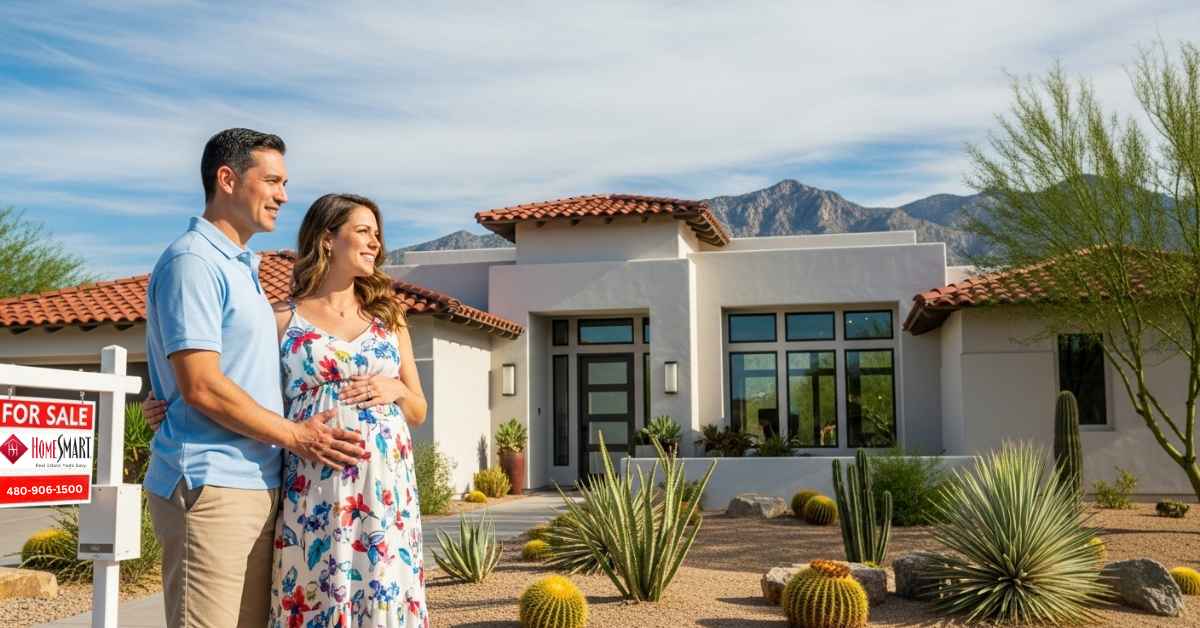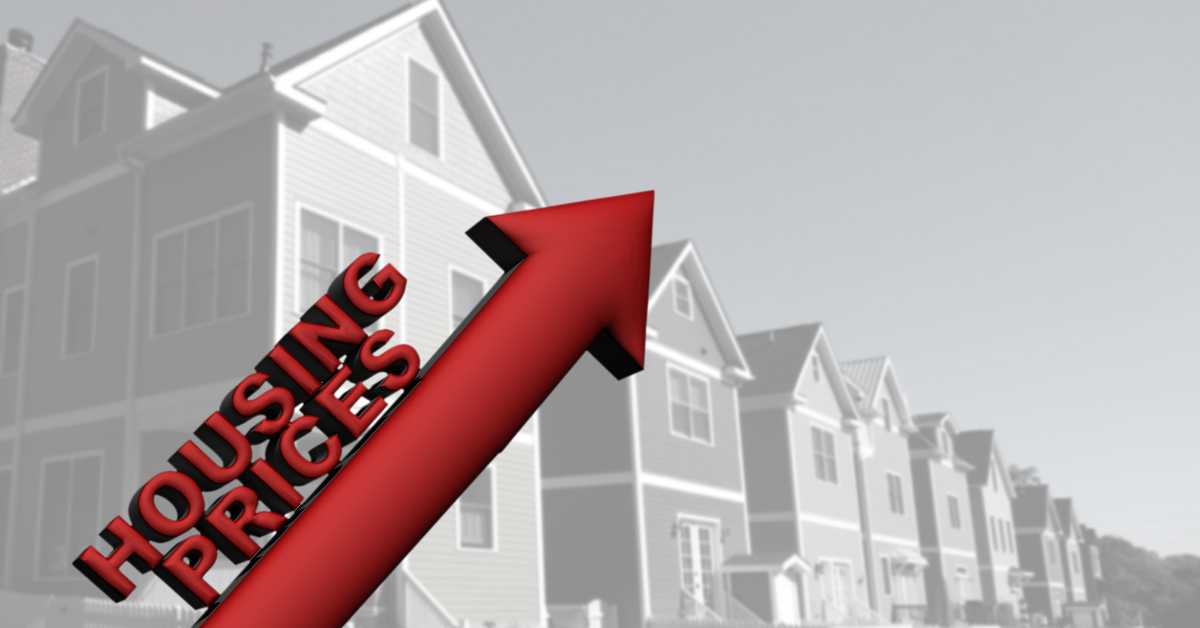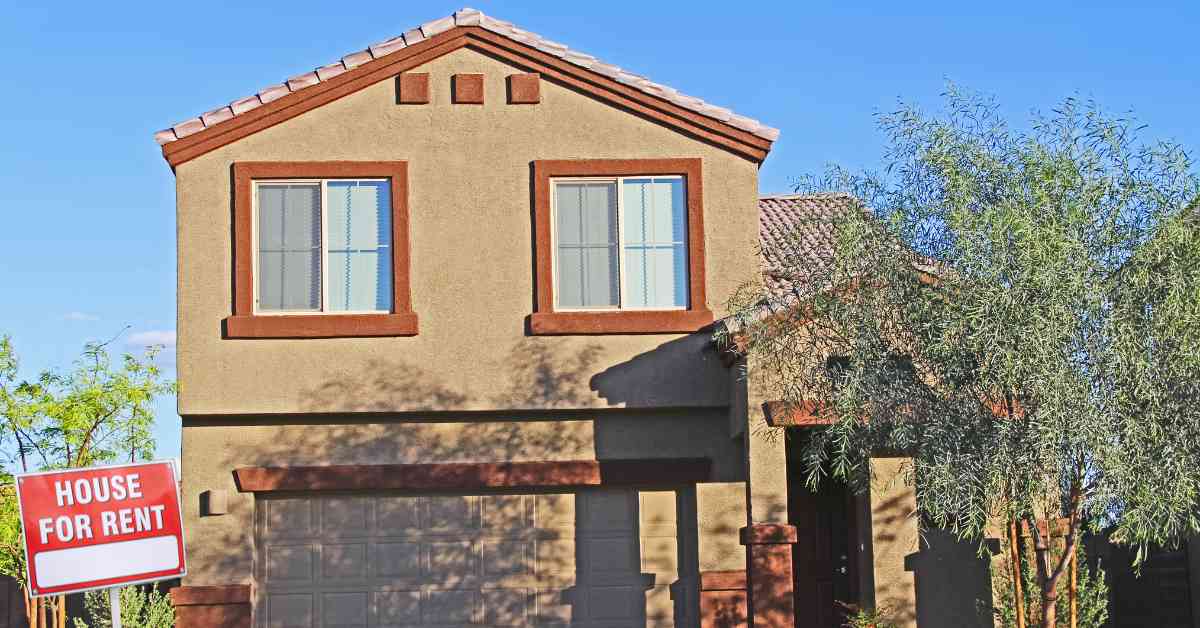The Delayed Dream: Buying Your First Home in Your 30s or 40s
.jpg)
For decades, there was this almost unspoken assumption: you bought your first home right after college or soon after getting a stable job. Landing a place felt like a kind of rite of passage, marking your entry into the ‘adult’ world. But walk into any real estate conversation today, or just glance at the stats, and the reality looks quite different.
Nostalgia for the 1990s dream isn't quite matching reality anymore. The notion that owning your own place should happen right at the start of adulthood feels like old school. Welcome to a new chapter!
I purchased my first home with my now ex-husband when I was 22. We paid 10.5% interest and didn't blink an eye. But what was the price of our first home? $18,300! Our mortgage payment was less than the rental apartment we came from. The apartment was more modern, but it was a 2-bedroom, and the house was 3 bedrooms with a formal dining room off the living room (basically one huge room that made the house look big as you stepped inside), and a private fenced yard with a large shed. I hated renting and couldn't wait to buy a house.
Today, it’s more common than ever before for people to be renting through their thirties, forties, and even beyond. The average age for a first-time buyer? Let’s check the numbers:
- In 2024, it was 38 years old.
- That’s up from 33 years old only three years ago (2020).
- Compare that to the general expectation in the early '90s right through to the late 2010s, which hovered around 31 years old.
So if you're finding yourself wondering, "Did I miss my window to buy a first home?" while you're navigating life as a renter in your 30s or 40s, let me put your mind at ease. Not only did you not miss it, but this is likely exactly when things are primed for you.
What's Causing the Shift?
It feels like a fundamental shift in the American dream itself. Why are we hitting big life milestones later in ways our parents and grandparents couldn't have imagined?

Think about these changes:
Starting a family: People are waiting longer to get married and have kids. The average age for a first baby used to be in the early 20s. Now? It's often 30 or more.
Finances: Getting that six-figure income takes time. Maybe you went back for more schooling. Maybe you had to travel or work abroad before finding your perfect role. Maybe you simply needed more time to pay off student loans or build those essential savings.
Life Choices: Flexibility is valued! Priorities have changed. More people want to explore different careers, delay marriage for partnership compatibility, or even take time to start businesses before settling down. Our paths to adulthood look much different than they used to.
This pattern isn't random. Research, like that done by John Burns Research & Consulting, strongly suggests hitting major life steps, including homeownership, is getting pushed back across every generation since the baby boomers. We're consciously deciding when we're truly ready for the responsibilities of homeownership, and that readiness often comes later. And honestly? With the current economic climate – rising prices, higher mortgage rates – taking that time can be a smart, financially cautious move.
Your Wallet, Your Journey: Navigating Rising Home Costs

Let’s address the elephant in the room: buying a home feels incredibly expensive right now.
Remember when that starter home felt financially manageable? Those days are behind us. New data from Redfin paints a stark picture. To afford the average home on the market today, you need an annual income of nearly $116,633. That compares sharply with the $64,160 you needed just a few years back to cover your typical rent.
Just 3 years ago, the income difference between buying and renting was about 17%. By 2023, it had surged to a 54% gap. And if projections hold, by 2025, that figure will blow past a 80% yearly income requirement vs rent!
What’s driving this massive increase? It's pretty clear:
1. Prices are rising: It’s not just inflation; housing is outpacing other costs at an unusual rate. Demand combined with limited inventory has pushed prices higher.
2. Mortgage Rates are High: Every time the interest rate on your mortgage climbs, the monthly payment needed to buy a typical house increases significantly. We're talking rates often staying above 6.5%, which dramatically shrinks the number of homes an average person can realistically afford.
3. Supply is Tense: Amazing homes in great locations aren't magically appearing overnight. Low inventory means fewer choices and often more bidding wars or longer wait times.
4. Most younger people want a home that is ready to move into with all the bells and whistles. They aren't interested in purchasing homes that are priced lower because they need updating. When you're after the house that shows the best in your price range, you're going to have competition among other buyers.
But here’s the crucial point: if you’ve been renting while focusing on building a solid career, saving adequately, and waiting until you really feel financially secure, congratulations – you're doing the smart thing. You're not falling behind. You're strategically buying the time and security you need before taking on the commitments of homeownership. Waiting might be tough while you’re stuck with limited options or higher monthly rent, but from a long-term perspective, it can be sound financial planning.
How Waiting (Being a "Seasoned Renter") Actually Helps You

Feeling like you're starting late? You're not! In fact, you have potential advantages over those who bought their first homes in their mid-twenties. Here’s why buying later in life can be genuinely advantageous:
1. You’re Financially Smarter: By the time you near your late 30s or 40s, you’ve likely had more years to climb the career ladder. Your income likely looks stronger now, perhaps significantly so. You’ve also likely been diligently saving not only for the down payment but crucially for an emergency fund. And hey, that might translate to a better credit score.
2. Your Priorities are Sharper: This is a big one. Imagine less stressful days as a young adult, living in a 1-bedroom apartment where "decent" was okay because life felt different. Now, let’s say you’re looking at houses in your 30s or 40s. You know exactly the kind of space you need for your dog, that home office where you might still be working remotely, a kitchen that you truly feel at home in. You've lived, you've learned, you've seen what doesn't work anymore. Because you understand what truly matters in a living space, you are less likely to get caught up in impulsive buying, buying based on looks alone, or making a decision you might later regret. You're buying to fit your slightly settled life, your actual needs, and your financial confidence.
The Market is Adapting!

People in the real estate business? They see this change. They see more buyers hitting these later milestones. As a result, the market itself is shifting. You might find:
More Options Satisfying Smaller Needs: Maybe you don't need a huge backyard anymore? Maybe you value lower maintenance simply being able to enjoy weekends without constantly redoing decks or planning extensive spring cleanings. You might find lots of smaller homes, townhomes, condos, or even well-maintained rentals (sometimes!) that perfectly suit someone ready to put down roots but maybe doesn't need the massive footprint of older dream homes.
Communities Evolving: Some areas are even developing with these later-life homeowners in mind – places offering pools, updated amenities, or proximity to services tailored for a settled, often slightly older, lifestyle.
More Experienced Agents: Real estate agents might even be leaning into the idea that having more life experience makes you a better, more discerning buyer. You might not even have your parents by your side for every showing, and being in shock with today's prices.
Renting Isn't a Failure Anymore

Let's cut the stigma. The narrative that rents in your 30s, 40s, or even 50s means you're "behind" the eight-ball isn't accurate anymore. For today's younger generations, buying often just isn't feasible at earlier ages under the current pressures.
The high cost of homes, combined with changing life priorities, simply means more people are rightly choosing to wait until their timing feels right.
It can be frustrating feeling like everyone else has blazed their housing trail while you're still navigating dinner bookings and utility bills. But understanding the why helps. We’re living in an era where hitting major life milestones isn't rushed.
What ages werre your parents or grandparents getting married or starting a family? Perhaps much younger. Major life decisions involving children or deeply financial commitments used to track more closely with younger ages.
So, whether you've been renting since you left college or you're just starting to seriously consider buying now after years of progression, remember this: The timing in your 30s or 40s is likely perfect for you. You're bringing valuable life and financial experience to the table.
It might not be the typical "fresh-out-of-college" scenario, but that doesn't mean your path to homeownership isn't valid or smart.
Looking Ready to Take That Leap?

Great! When your time comes for that first property purchase, approaching it with clarity, financial preparedness, and clear priorities is your strongest asset. You're stepping onto this journey better equipped than someone who rushed into it out of peer pressure or pure FOMO (“Fear Of Missing Out”).
So, yeah, exploring the "why" behind the delayed home purchase is healthy. But knowing the answer? Now you know. You're not late. You're aligned. You're positioned. The truth about buying your first home at your age? Your timing isn't off – it's essentially on point.
You've navigated many other challenging life decisions already. Buying your first home can be the next major step you confidently make. And you know what? You're really not behind. You're just buying strategically.
Next Steps? Lean Into Your Readiness

Many find that getting pre-approved for a mortgage settles the finance discussion upfront. It gives you numbers. Seeing what a lender thinks you can afford makes the hunt for specific homes feel less like gambling. Plus, it highlights your preparedness.
So, yeah, exploring the "why" behind the delayed home purchase is healthy. But knowing the answer? Now you know. You're not late. You're aligned. You're positioned. The truth about buying your first home at your age? Your timing isn't off – it's essentially on point.
Posted by Judy Orr on
.jpg)
Leave A Comment